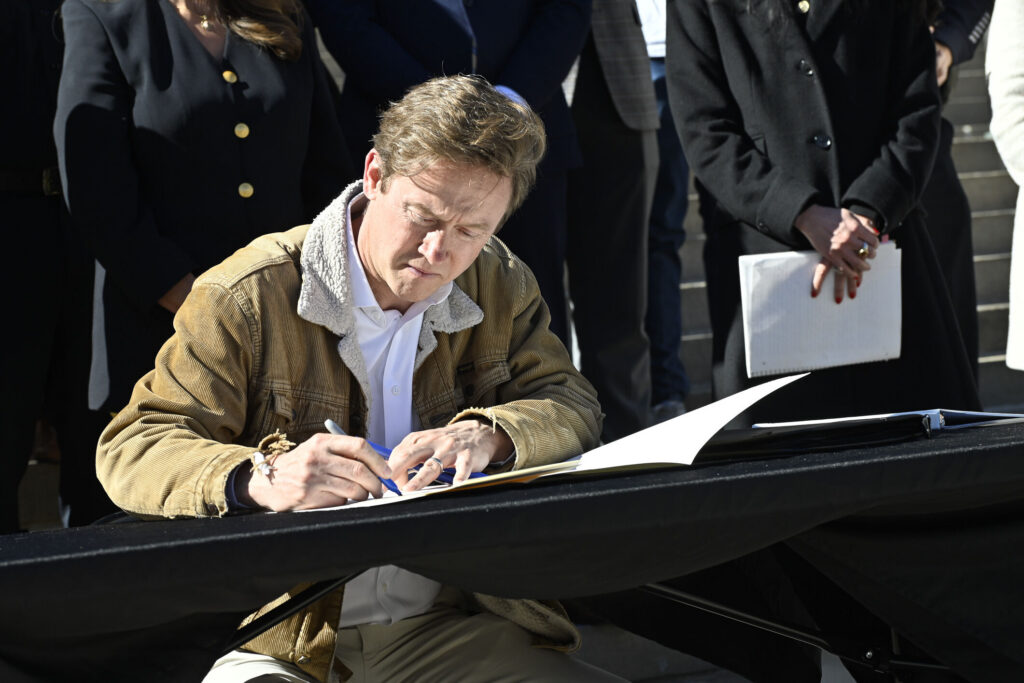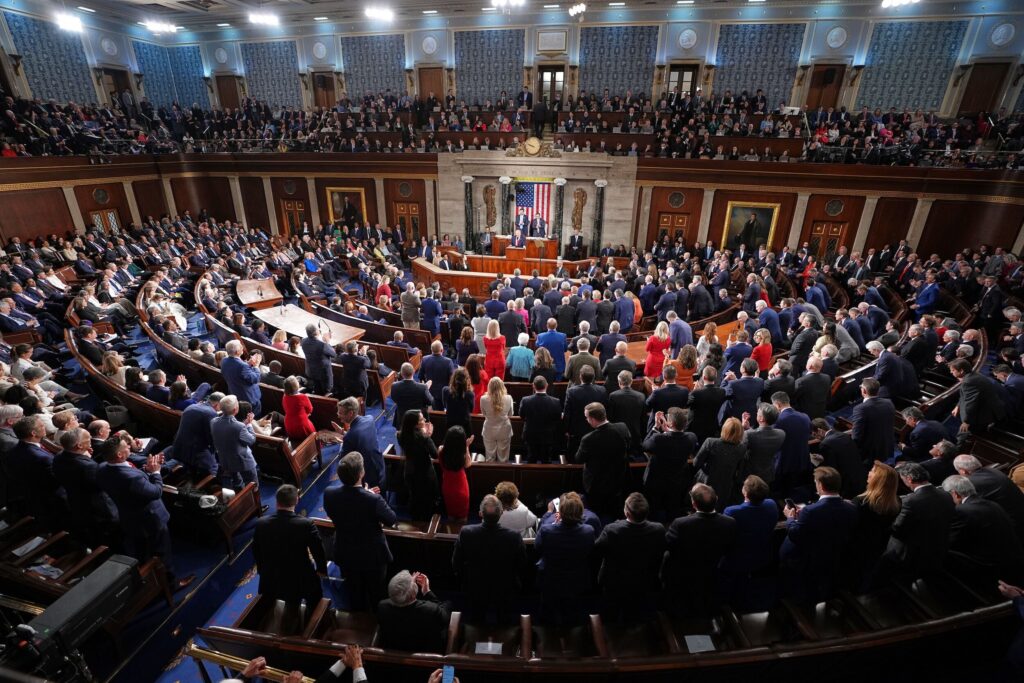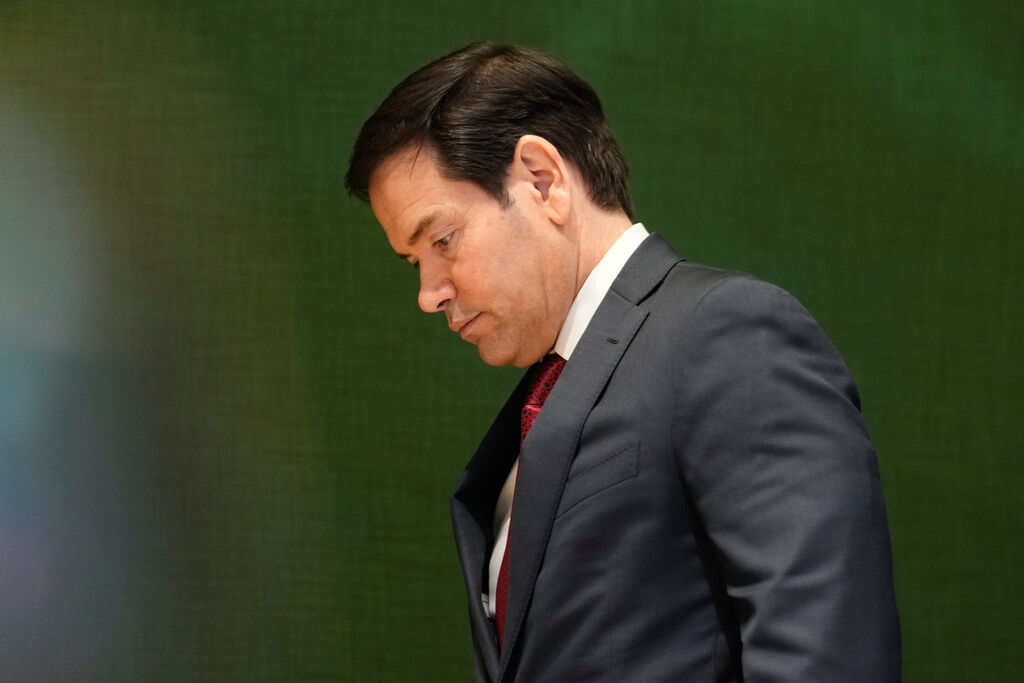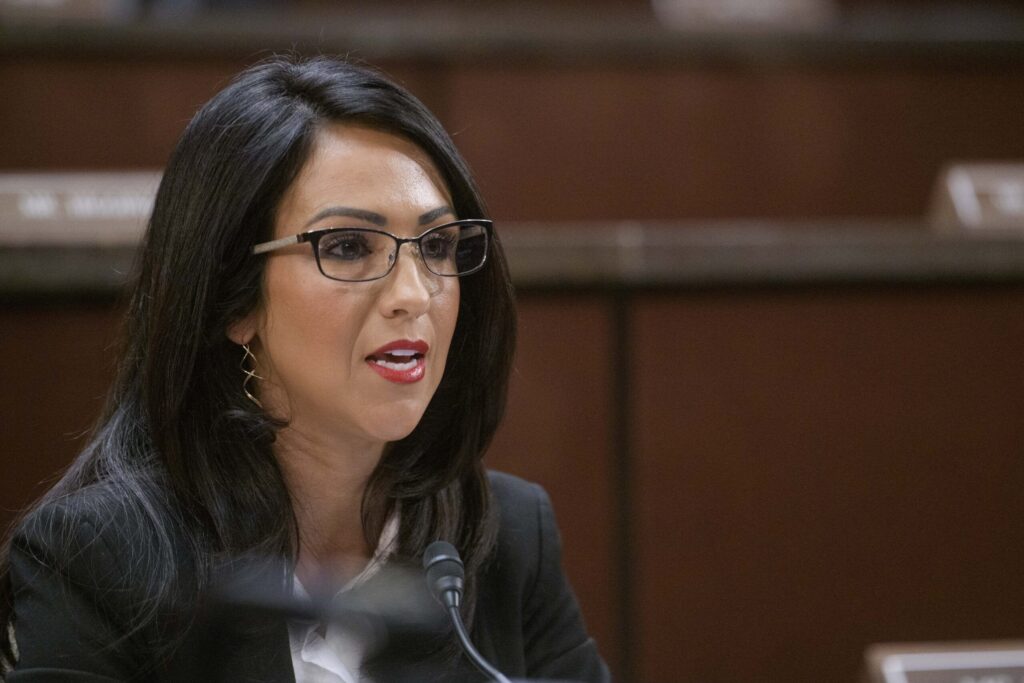Battery bill could make it easier to store power at home
Senate Bill 89 before the Senate Business, Labor and Technology Committee Wednesday afternoon would make it easier to collect energy for later in a home battery.
Sponsored by Democratic Sen. Steve Fenberg from Boulder and Republican Rep. Kevin Lundberg of Berthoud, the legislation allows homeowners to store up to 25 kilowatts, and assures that utilities won’d discourage it with extra fees.
Such storage is important to those who rely on medical equipment that must remain powered up, even in an outage, proponents say.
Energy providers are nervously watching advancements in battery and renewable energy technologies that might eventually allow people to become energy self-sufficient, someday storing power when the sun shines for when it doesn’t.
Amy Oliver Cooke, executive vice president of the Denver-based Independence Institute and a member of President Trump’s EPA transition team, and Jim Alexee is the state director of the Rocky Mountain Chapter of the Sierra Club, together wrote an op-ed in favor of the bill.
They contend technology has advanced and prices have dropped, making home storage systems more cost-effective.
“However, there is still one big barrier that is keeping Coloradans from being able to take advantage of this exciting innovation: overreaching government-regulated monopolies who are using red tape, expensive fees, and invasive regulations to discourage consumers from installing storage systems,” Oliver Cooke and Alexee wrote.
“According to at least one local solar and battery installer, Buglet Solar, these unnecessary regulations can add up to $3,000 or more to the installation costs and complicate what is otherwise a straightforward installation.”
Senate Bill 89 would bar a state regulated monopoly utility, such as Xcel, “from throwing up regulatory barriers and charging discriminatory rates or fees.”
The bill also could yield financial benefits, according to the Independence Institute and Sierra Cub.
“These battery systems can offer huge advantages to consumers,” their representatives wrote. “When peak pricing becomes a reality, ratepayers who invest in storage can charge their batteries during off peak times for use during high peak periods.
“The ability of an individual ratepayer to store power for later use is an effective way to reduce stress on the grid. Certainly, preferable to excessively high pricing, rolling brown outs, or building expensive additional power plants that are only used a few hours a year for the most energy-intensive days in July.”
Xcel has allowed ratepayers to install batteries, and it has developed guidelines through a renewably energy industry working group, Oliver Cooke and Alexee said. The guidelines, however are not in the Public Utilities Commission’s rules and the company retains the right to change them, they said.
That being the case, “Xcel shouldn’t be opposed to the PUC codifying those practices in rules,” they wrote.
“Senate Bill 89 would direct the Public Utilities Commission to review what the working group has accomplished and to use those guidelines to inform new rules that are meant to ensure consumers have the right to take advantage of this new and potentially game-changing technology. As the bill states, the PUC should establish rules that strive to be “as simple, streamlined, and affordable for customers as possible.”











